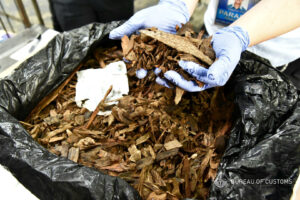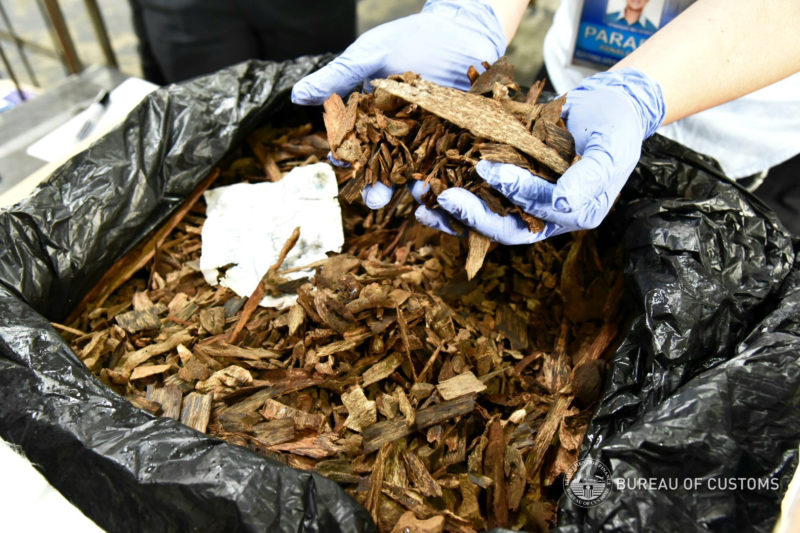-
Bureau of Customs intercepted in Pasay City three packages containing 28 kilos of agarwood with an estimated street value of P2.4 million
-
All three packages were shipped by a resident from Davao and bound for the United Arab Emirates without proper Department of Environment and Natural Resources permits
-
Agarwood is found only in the jungles of Mindanao and Visayas and is among the world’s list of endangered species of wild flora

The Bureau of Customs (BOC) has intercepted three packages containing 28 kilograms (kg) of agarwood—a rare and expensive wood—with an estimated street value of P2.4 million in a warehouse in Pasay City.
BOC-Ninoy Aquino International Airport (NAIA), in coordination with BOC’s Environment Protection Compliance Division, seized the packages which were misdeclared to contain “face masks and clothes,” “shoes and hand bags,” and “leather jackets, face masks, man pants.”
All three packages were shipped by a resident from Davao and bound for the United Arab Emirates, BOC said in a statement.
Upon x-ray inspection, the packages yielded images different from what was declared by the sender, which prompted a 100% physical examination and the discovery of the 28 kg of agarwood.
Additionally, the packages were being exported without the necessary permits from the Department of Environment and Natural Resources (DENR).
BOC said DENR stressed that selling of agarwood or lapnisan is illegal in the Philippines.
Agarwood is found only in the heart of the jungles of Mindanao and Visayas and is classified under the Convention on International Trade in Endangered Species of Wild Flora and Fauna.
Agarwood produces a resin that is valued for its distinctive fragrance and is formed when the host tree becomes infected with a mold called Phialophora parasitica. The mold infection makes the tree produce a dark aromatic resin called aloes or aga in its heartwood. The fragrant resin is used to make incense, perfume, and medicinal products particularly in the Middle East and Asia.
BOC noted that foreigners are said to hike to remote villages in the country seeking help in finding the rare tree. According to reports, the rare wood is one of the rarest and most expensive in the world, with a kilo fetching as much as P750,000.
BOC said the three packages will be subjected to seizure and forfeiture proceedings for violation of Section 117 (Regulated Shipments), Section 1400 (Misdeclaration) and Section 1113 (Property Subject to Seizure and Forfeiture), all of Republic Act (RA) No. 10863 (Customs Modernization and Tariff Act), in relation to Section 27 (i) [Illegal Transport] of RA 9147 (Wild Life Act).
The agarwood will be turned over to DENR.





